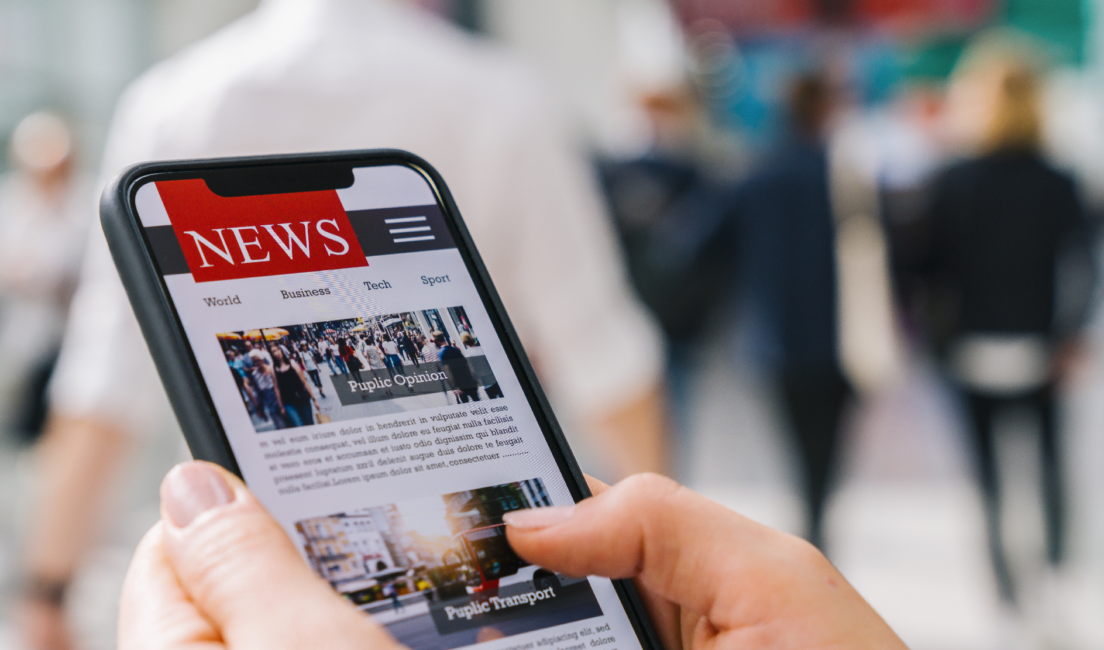We value free expression, but we don't like the idea of having to sort through misinformation. What do we do?
How do we handle the “infodemic”?

My house has been relatively peaceful lately, but the world still seems awfully noisy. Phones buzz throughout the day with news alerts, most of which are discouraging and some are just confusing.
I want answers to what seem like pretty straightforward questions. Now that the curve is effectively flattened, what’s next? What will our lives look like, day-to-day? Should I judge my neighbor for that barbecue he just had? Does my nephew need to postpone his September wedding? Is it safe to send my kids to visit their grandparents (please, please)? Most importantly, how do we make sure we don’t end up in lockdown again?
An “infodemic”
The term “infodemic” first appeared in 2003 in a Washington Post opinion piece by political scientist David J. Rothkopf. Of course, no one had heard of COVID-19 in 2003 and Rothkopf was writing about SARS. All the way back then, he worried about the impact of:
A few facts, mixed with fear, speculation and rumor, amplified and relayed swiftly worldwide by modern information technologies [and the effect on] national and international economies, politics and even security…
Do you remember what “modern information technology” was like in 2003? Me neither, but I looked it up and I can tell you it didn’t include many smartphones. The first web-browsing Blackberry was introduced in 2002 and there were no iPhones (2007) or iPads (2010). Facebook and Twitter were still a few years away, too.
Back here in 2020, we’ve got multiple devices close at hand with constant updates from every source imaginable, offering plenty of fear, speculation, and rumor. People are drawing different conclusions from the same evidence, and we’re awash in a sea of information.
Despite all of this, some people seem very confident about what they think they know. They’re confident enough to criticize others for alternative interpretations of the existing data. To complicate matters further, most of us have unrecognized biases (Heterodox: The Blog) about who we choose to believe.
If the experts are still figuring things out and my own judgment is biased, how am I supposed to find practical and sound information?
Everyone is an expert
Many of us use social media as our main source of news. Social media enables information to move more quickly than ever before in history (which can be dangerous), but it also has the potential to make everyone appear to be an expert. Sorting out the misinformation can be difficult.
False information has serious consequences, especially during a pandemic. Theories about the origin of the virus, criticism of the mismanagement of the crisis, and the constant stream of data can confuse all of us as we search for answers and advice. In a continually evolving situation and in the social media landscape, truth is not always easy to identify.
Information lockdown
One response to the confusing stream of information is just to stop it. Some governments have used the pandemic as an excuse for exercising more control over the press. Some private entities would prefer to stem the flow of information than to dispute every rumor that surfaces.
Some hospital administrators in the United States are forbidding doctors and nurses from speaking publicly about their experience of the pandemic. While a desire to ensure accuracy in public information is laudable, censoring health care workers’ expressions may be a distraction we can’t afford. Let’s remember that censorship may well be responsible for the scale of the crisis we now face.
Adding to the noise or clearing the air?
We value free expression, but we don’t like the idea of having to sort through misinformation. What do we do?
Instead of censorship, arguing on social media, or trying to be arbiters of truth, we can instead double down on intellectual humility and empathy. To get to the root of misinformation, we first have to try to understand the fear and anxiety (Undark) that drives it.
We all have biases, and we all want answers. That was true a year ago and it will still be true a year from now. But the current situation—as scary as it is—gives us an opportunity to practice the skills necessary for a stronger civil society in the long run.
5 more links worth your time
-
- [Online Event] Civil Squared Live: What Should Government Do (or Not Do) During a Pandemic? A Conversation with Professor Brandon Turner of Clemson University – Join us live online this Thursday, May 7th at 7:30 pm (EDT) to discuss the roles of government, individuals, and communities in the current crisis.
- How to Fight an Infodemic, Intelligence Squared Debates Podcast – Experts share insights on how information spreads and how to be “discerning communicators.”
- Combating COVID-19 Misinformation with Disassociation, Cato Institute – This op-ed explores the relationship between freedom of speech and the freedom of private companies to “disassociate” with misinformation.
- Coronavirus is being used to suppress press freedoms globally, Axios – Where are governments using the coronavirus to attack freedom of the press? A round-up of national and international examples for your consideration.
- Quiz: Online News, Common Ground Solutions – Which social media platforms give Americans the most news? How many people are seeing dubious online stories about COVID-19? Test your knowledge with this short quiz.
p.s. If you’ve got a political, ideological, or philosophical issue you’ve been considering, email me at jennifer@civilsquared.org and I’ll work with my team to put together a list of articles, issues, and interesting points of view to share with you and others.
Photo by rcfotostock on Adobe Stock